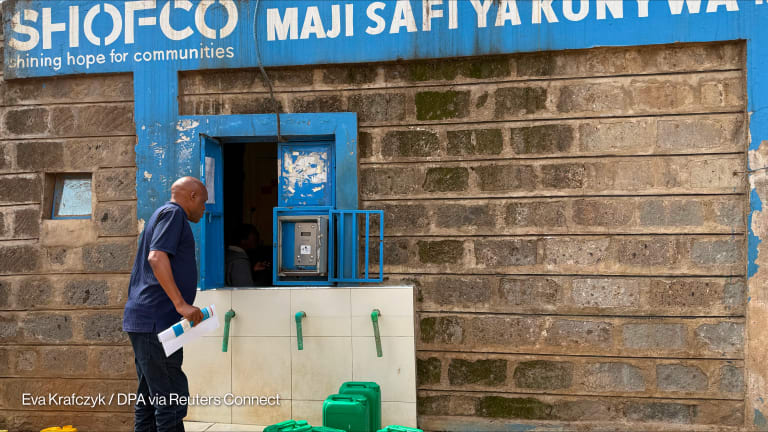Opinion: We need data values all the more when democracy is in danger

It’s sometimes hard to know which to fear more: too much data or not enough. The unstoppable stream of data pouring forth from our devices is supercharging social media, artificial intelligence, and other powerful technologies that fuel polarization, political extremism, and demagoguery. But, at the same time, only two-thirds of deaths in the world are even registered while only 1 in 6 countries has sufficient data to report on climate targets for sustainable development.
Data reflects and fuels existing inequalities. Who is most likely to be harmed by too much data or disadvantaged by not being counted? It’s the most vulnerable — people who are already excluded or discriminated against — for whom data and the technological advances of the last decades become just another tool of oppression.
Unless we address the underlying and systemic issues that result in people being harmed and disempowered in data, we are destined to replicate or amplify existing inequalities and harms. We will also miss out on the enormous good that data and technology can do in the world, from uncovering problems and driving effective policies to mapping the route to the better world we want.
Fairer data needs to be built on strong values and supported by adequate resources.
Disempowered by data
The international data and tech communities must be proactive, not reactive, and assert the values that we want to guide the development and use of data systems and the new technologies that power them. That’s why we’ve spent 18 months consulting hundreds of people from more than 60 countries about the problems we face and the changes that are necessary to create a fair data future.
Opinion: After democracy summit, we must invest in civic networks
The effort to strengthen global democratic networks must extend far deeper than state governments.
What we heard from advocates, policymakers, development practitioners, and others was the need to challenge power structures that impact how data is designed, managed, and used. Data systems must help and empower people — not harm or exclude them.
A plan for social change
The result of the past year of consultation through the Data Values Project is a five-point #DataValues Manifesto to spark a global advocacy campaign for ethical collection, use, management, and sharing of data.
The manifesto and global campaign, which launched at the 77th United Nations General Assembly this month, urge companies, governments, organizations, and others to take steps to place people’s interests at the heart of data for development. The manifesto calls for each to:
• Support people to shape how they’re represented in data.
• Invest in public participation for accountability.
• Democratize data skills for greater equality.
• Create cultures of transparency, data sharing, and use.
• Fund open and responsive data systems so that all people share in the benefits of data.
Fund what you value
The #DataValues Manifesto is a moral compass to stop us losing our way, but it will take more than values to fully realize a fair data future. Being more inclusive, more open, and democratizing data and tech skills cost money.
Donors love data, but they don’t want to pay for it. Paris21’s most recent Partner Report on Support to Statistics confirms that official development assistance to data and statistics peaked in 2015 at the start of the Sustainable Development Goals. It has stagnated ever since.
Investments in data can supercharge development. Analysis of past investments in data from the Global Partnership for Sustainable Development Data and Dalberg set to be published later this month shows that every dollar generates up to $73 in economic benefit.
If the full powers of data are to be used in ways that give people control, promote equity, and drive policy to achieve the SDGs, data systems need to be properly funded. All of this means we’ve got to step up our commitment to funding, which is exactly what a new initiative called Data with Purpose is meant to do.
We are calling on donors to commit to spending 0.8% of their budgets to fund data systems — funding that can be used to ensure that data systems promote equity and inclusivity, as well as efficiency. As a first step, the U.N. and the World Bank are partnering to help raise $500 million over the next 10 years — pooled funding to catalyze further investment to fill the annual funding gap of $700 million.
It’s crucial for us all to put our commitments and actions behind the principles in the Data Values project, to ensure that data results in improving livelihoods for everyone, and that effective, open, and transparent data systems are fully funded in this effort.
Search for articles
Most Read
- 1
- 2
- 3
- 4
- 5








